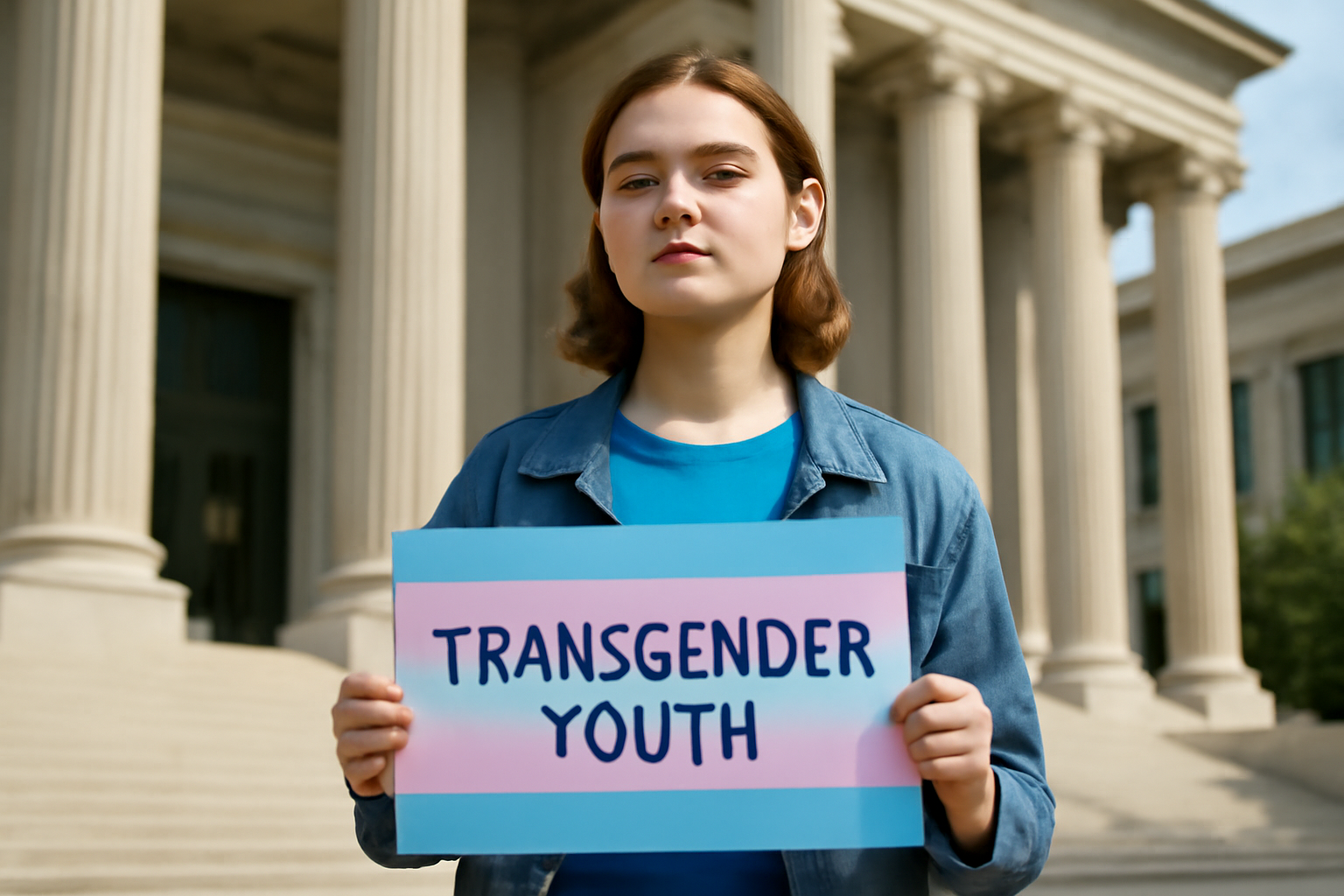
Seven young transgender individuals, healthcare providers specializing in LGBTQ services, and the advocacy organization PFLAG have initiated legal action against former President Donald Trump and his administration. The lawsuit, filed on a recent Tuesday, addresses two executive orders that sought to limit gender-affirming medications and surgical procedures for transgender individuals under the age of 19.
Although the former president cannot directly prohibit these treatments, his executive order dated January 28 threatened to withdraw federal funding from hospitals and educational institutions that offer pediatric transgender healthcare. Agencies within the executive branch, such as the Department of Health and Human Services, received instructions to cease grants related to research and education in this field. The Justice Department was also tasked with considering both civil and criminal actions against healthcare providers, leveraging laws against consumer fraud and female genital mutilation.
As a result of these directives, several major hospitals, including NYU Langone Health in New York, Children’s Hospital of Richmond in Virginia, and Children’s National in Washington, DC, have suspended treatments. Denver Health in Colorado issued a statement expressing concern over the potential loss of essential funding and its impact on community healthcare services.
The Immediate Impact on Transgender Patients
Transgender patients are facing severe consequences due to the suspension of care. The lawsuit, filed in a federal court in Maryland, highlights the stories of patients whose appointments have been abruptly canceled. Some of these patients have already relocated from states that have enacted bans on gender-affirming care for minors.
Kristen Chapman, a mother from Richmond, Virginia, explains the situation faced by her 17-year-old daughter, Willow. After moving from Tennessee to escape restrictive laws, they struggled to find a healthcare provider willing to accept their Medicaid insurance, eventually opting to pay out-of-pocket. Just before a long-awaited appointment, they were informed of the executive order, leading to a cancellation. "I am heartbroken, tired, and scared," Chapman shared.
Another case involves an 18-year-old Dylan Doe, who moved from Tennessee to Massachusetts for hormone therapy. His treatment was unexpectedly halted when his clinic called to cancel his testosterone injection. "Access to healthcare makes Dylan's life livable," states the complaint, underscoring his emotional distress at the prospect of losing this access.
The executive order has further disrupted access to medication for transgender children approaching puberty. For instance, a 12-year-old nonbinary child, Cameron Coe, had their puberty-blocking implant appointment canceled at NYU Langone with minimal notice. The Coe family pursued this treatment to address escalating distress and medical indicators of testosterone, seeking more time to decide on future medical interventions. The sudden cancellation has intensified Cameron's anxiety, according to the lawsuit.
While the executive order does not constitute an outright national ban, hospitals that preemptively deny care to transgender patients may be violating anti-discrimination laws. New York State Attorney General Letitia James has reminded providers that state law prohibits discrimination based on sex, gender identity, or expression.
The Legal Challenge
The American Civil Liberties Union (ACLU), Lambda Legal, and the law firms Hogan Lovells and Jenner & Block have filed a complaint challenging the executive orders. They argue that Trump exceeded his authority by attempting to cut off federal funds, a power designated to Congress. The complaint asserts that the orders infringe on parental rights and the ability to make healthcare decisions for their children.
The legal filing references federal law prohibiting healthcare discrimination based on sex, noting that similar medical treatments are available to cisgender children for other medical conditions. It highlights that Trump’s orders target only gender-affirming care for the purpose of aligning a patient's gender identity with their chosen expression.
These arguments are parallel to the case L.W. v. Skrmetti, currently under Supreme Court review, which challenges Tennessee's ban on gender-affirming care for minors. The outcome of this case could influence the legal landscape for executive orders like Trump's. If the court finds such bans discriminatory, it could reinforce protections for transgender healthcare. Conversely, a ruling in favor of the bans could weaken legal defenses against discriminatory policies.
The lawsuit emphasizes the harmful impacts of the executive orders, which seem designed to isolate and marginalize transgender individuals and their families. Harper Seldin, a senior staff attorney at the ACLU’s LGBTQ & HIV Project, asserts that these orders reflect governmental biases rather than legitimate interests. The community response, Seldin suggests, should focus on solidarity and resilience in the face of adversity.
Related Posts
Pride Month in Latin America: Protests and Demands for Equality
**Celebrating Pride and advocating LGBTQ+ rights in Latin America** Pride Month in Latin America was a lively mix where celebration met activism. Communities united, not just throwing a party but making a stand—demanding equality and pushing governments toward better protection and rights recognition. Throughout Latin America, pride events erupted in marches and cultural displays, each with a c [...]
Transgender Erasure Actions Implemented by National Park Service
```html Trump administration's impact on national park service and transgender recognition The Trump administration made notable moves in undermining transgender representation, which included directing agencies like National Park Service not include "T" and "Q" when they refered “LGBTQ” in any official communication. This move seems part a broader plan by this administration aimed at reducin [...]
Drag Night Extravaganza: Daddies & Baddies at Atlantic City's Anchor Rock Club
Atlantic City, NJ, isn't just about its casinos and boardwalk—it's a hub bursting with energy and entertainment. One event that truly captures this spirit? The "Daddies & Baddies" drag night at Anchor Rock Club. This vibrant night celebrates amateur drag in all its glory, offering a kaleidoscope display where creativity and community unite. If you're looking where inclusivity and creativity take [...]